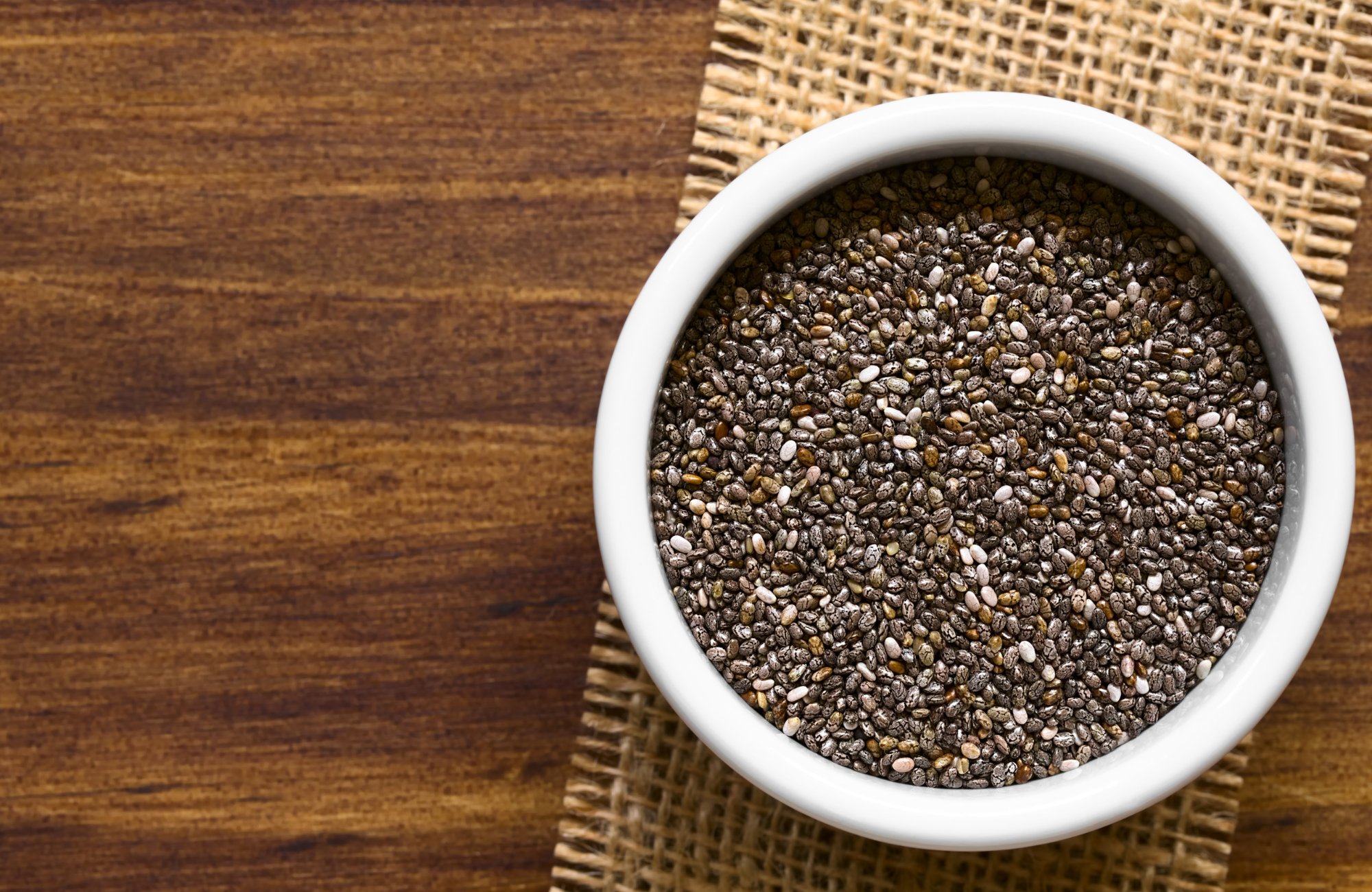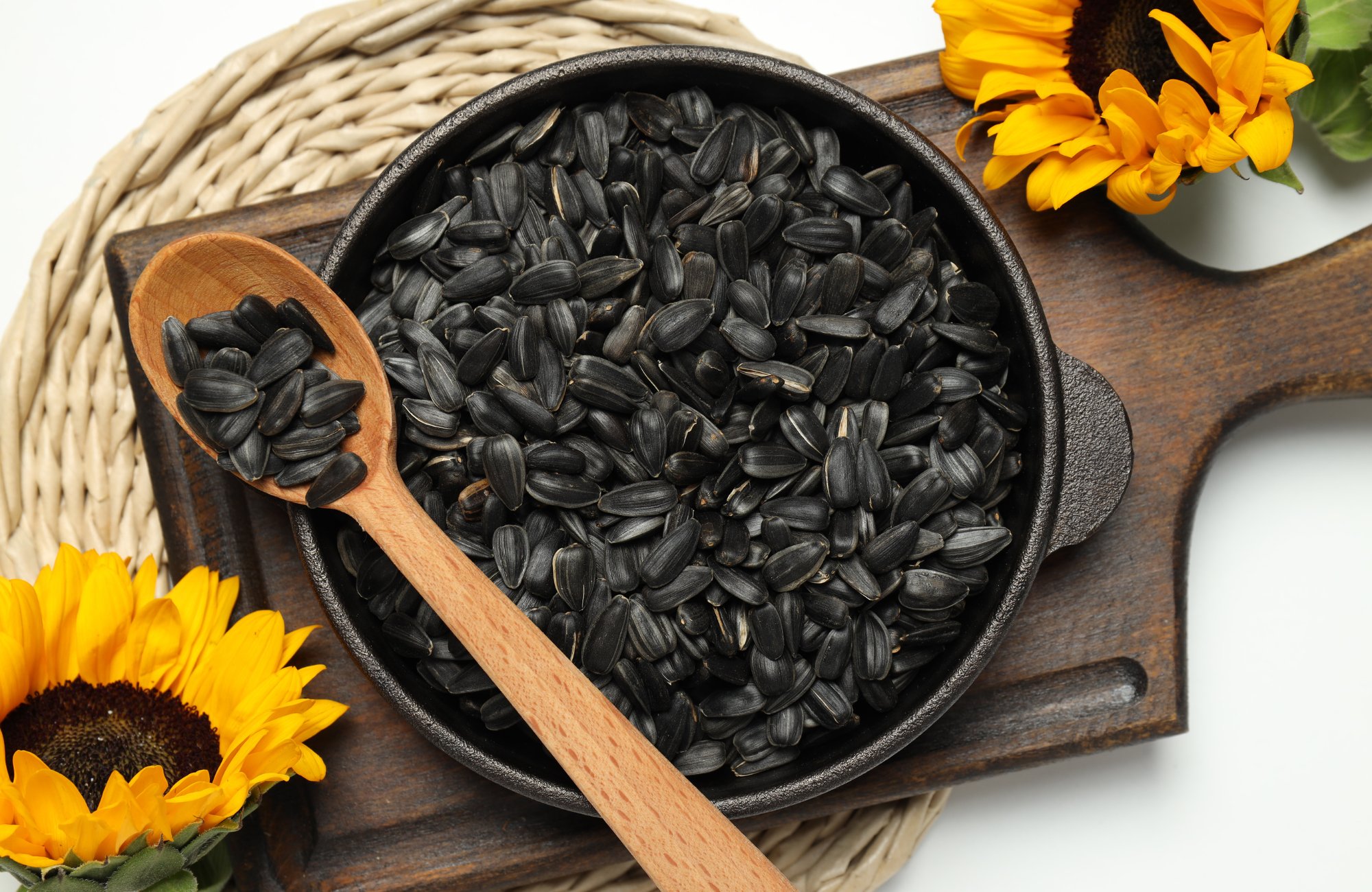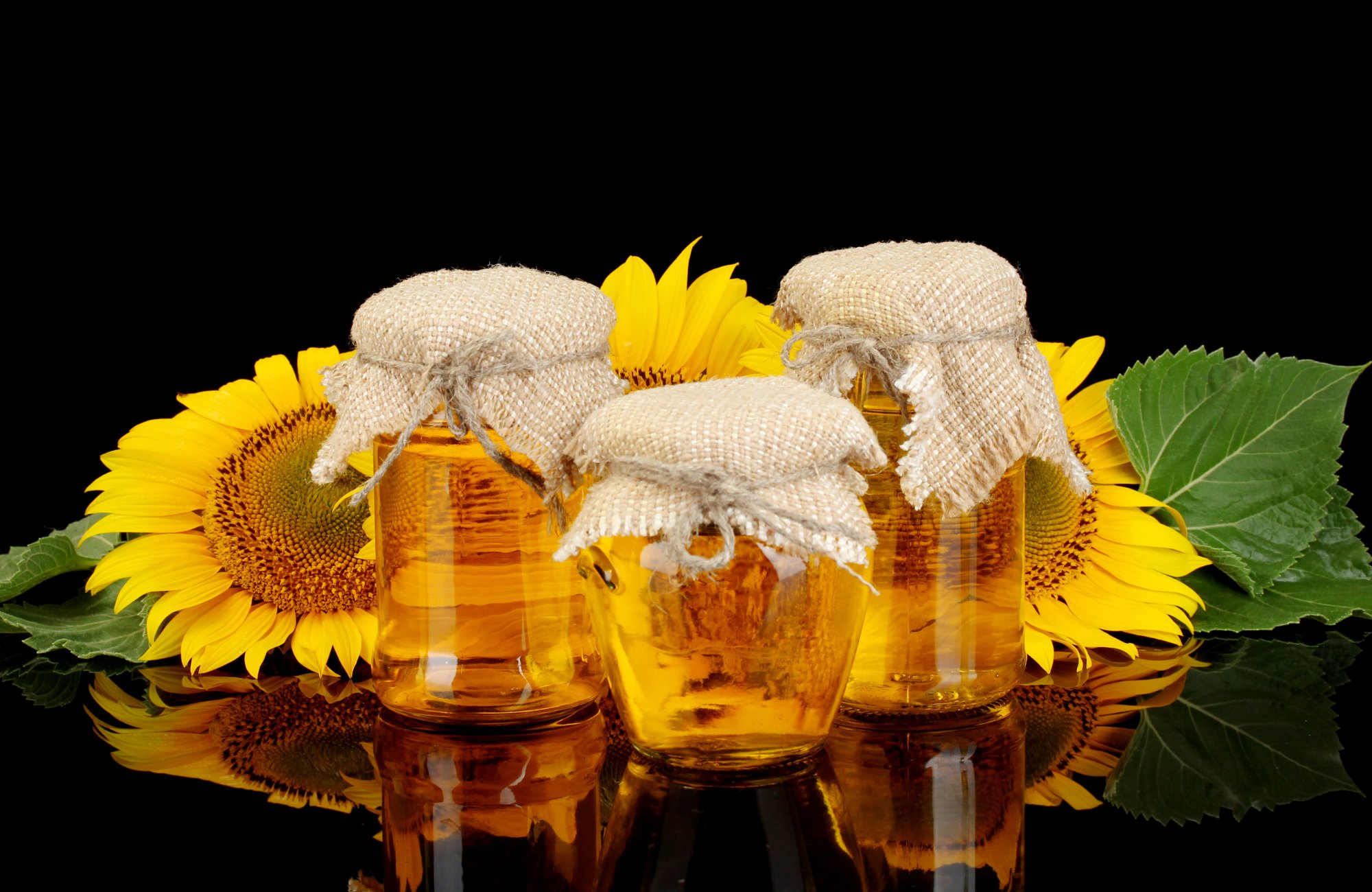
Are Chia Seeds Good For You? A Complete Guide to This Nutritional Powerhouse
Chia seeds have become increasingly popular in recent years, and for good reason. These tiny seeds pack an impressive nutritional profile that can benefit your health in numerous ways. But are chia seeds really good for you? In this comprehensive guide, we’ll explore what makes these small seeds so special and how you can easily incorporate them into your diet.
What are Chia Seeds?
Chia seeds come from the flowering plant Salvia hispanica, a member of the mint family. The word “chia” means “strength” in the Mayan language, highlighting how these seeds were valued as an energy source by ancient civilizations.
These tiny seeds measure about 1mm in diameter and come in black, brown, and white varieties. What makes chia seeds especially unique is their remarkable ability to absorb liquid, up to 12 times their weight, forming a gel-like substance when mixed with water or other liquids.
While chia seeds are related to the chia used in Chia Pets, they’re not exactly the same variety, though both come from the Salvia genus. The chia seeds we eat are specifically cultivated for consumption and their nutritional benefits.
Nutritional Profile of Chia Seeds
Chia seeds contain such a nutritional punch that it’s easy to see why health experts recommend them. A single ounce (about 2-3 tablespoons) of dry chia seeds provides:
- Calories: 138
- Protein: 4.7g
- Fat: 8.7g (with 5g being omega-3 fatty acids)
- Carbohydrates: 11.9g
- Dietary Fiber: 9.8g (39% of daily recommended intake)
- Calcium: 14% of Daily Value
- Magnesium: 23% of Daily Value
- Phosphorus: 20% of Daily Value
- Iron: 12% of Daily Value
- Zinc: 12% of Daily Value
What’s most impressive about chia seeds is their fiber content, nearly 10 grams per ounce, making them one of the most fiber-dense foods available. They also contain all nine essential amino acids, making them a complete protein source, which is rare for plant foods.
Health Benefits of Chia Seeds
Excellent Source of Fiber
Chia seeds are one of the best plant sources of fiber, helping promote regular bowel movements, feed beneficial gut bacteria, create a feeling of fullness to prevent overeating, and slow the absorption of sugar into the bloodstream. When mixed with liquid, such as when drinking chia seed water, the soluble fiber forms a gel that slows digestion and helps regulate blood sugar levels, while the insoluble fiber adds bulk to stool and supports overall digestive health.
Rich in Omega-3 Fatty Acids
Chia seeds are packed with alpha-linolenic acid (ALA), a plant-based omega-3 fatty acid that’s essential for health. Regular consumption of omega-3s from sources like chia seeds may:
- Reduce inflammation
- Support brain health
- Lower risk of heart disease
- Improve cholesterol levels
While fish sources of omega-3s are often highlighted, chia seeds provide a valuable plant-based alternative, especially for vegetarians and vegans.
Weight Management Support
If you’re looking to maintain a healthy weight, adding chia seeds to your diet might help. Chia seeds can support weight management by:
- Creating a feeling of fullness due to their ability to absorb liquid and expand
- Providing protein and fiber that helps reduce appetite
- Slowing digestion, helping you feel satisfied longer after meals
When you consume chia seeds, they absorb liquid in your stomach and expand, creating a sense of fullness that can help prevent overeating. While chia seeds alone won’t cause weight loss, they can be a helpful addition to a balanced diet.
Heart Health Benefits
Consuming chia seeds may lower your risk of heart disease through several mechanisms:
- Their soluble fiber helps reduce LDL (“bad”) cholesterol
- Omega-3 fatty acids reduce inflammation
- Regular consumption may help lower blood pressure
- They may improve heart health markers overall
Studies show that eating chia seeds can help decrease blood pressure in people with hypertension, a major risk factor for heart disease.
Blood Sugar Regulation
Chia seeds can help stabilize blood sugar levels thanks to their fiber, protein, and healthy fats. When you eat chia seeds:
- The gel formed by chia seeds slows the conversion of carbs to sugar
- This helps prevent spikes in blood glucose after eating
- More stable blood sugar levels are maintained throughout the day
For those concerned about diabetes or maintaining healthy blood sugar levels, incorporating chia seeds into meals may help improve insulin sensitivity.
Bone Health Support
Chia seeds are rich in key nutrients that support bone health, including calcium, phosphorus, and magnesium. Just one ounce offers 14–18% of the recommended daily calcium intake, making chia seeds an excellent non-dairy source for maintaining strong and healthy bones.
Powerful Antioxidants
Chia seeds are rich in antioxidants like chlorogenic acid, caffeic acid, myricetin, quercetin, and kaempferol, which help neutralize free radicals, protect the seeds’ delicate fats from going rancid, and support overall cellular health. These compounds may also reduce inflammation and lower the risk of chronic diseases.
How to Incorporate Chia Seeds Into Your Diet
One of the best things about chia seeds is how easy they are to add to your diet. Their mild flavor makes them incredibly versatile. Here are some simple ways to enjoy chia seeds:
Basic Preparation Methods
You can eat chia seeds in several ways:
- Raw: Sprinkle dry chia seeds on salads, yogurt, or oatmeal
- Soaked: Mix with liquid for at least 15 minutes to form a gel
- Ground: Mill chia seeds for easier nutrient absorption and use in baking
- As a gel: Mix 1 part chia seeds with 6 parts water and refrigerate for 15+ minutes
Creative Ways to Use Chia Seeds
Beyond the basics, try these creative uses:
- Add to smoothies for extra nutrition and thickness
- Use as a thickener for soups, sauces, and jams
- Mix into homemade energy bars or balls
- Incorporate into meatballs or burgers as a binder
- Add to baked goods like muffins, bread, and cookies
- Blend into homemade salad dressings
Recommended Daily Consumption
While chia seeds are incredibly nutritious, it’s best to introduce them gradually into your diet and consume them in moderate amounts. Most experts suggest:
- Starting with 1 teaspoon daily and gradually increasing
- Working up to 1-2 tablespoons (about 15-25g) per day
- Drinking plenty of water when consuming chia seeds
Remember that too many chia seeds, especially without adequate hydration, could cause digestive discomfort due to their high fiber content.
Potential Considerations
While chia seeds are generally safe for most people, there are a few considerations to keep in mind:
Possible Side Effects
- Digestive issues: Too much fiber too quickly can cause bloating, gas, or constipation
- Choking risk: Never eat dry chia seeds by themselves, especially if you have difficulty swallowing
- Allergic reactions: Though rare, chia seed allergies are possible
Who Should Be Cautious
- People taking blood thinners or blood pressure medications should consult their doctor
- Those with swallowing difficulties should avoid dry chia seeds
- Individuals with known seed allergies should introduce chia seeds cautiously
Conclusion
So, are chia seeds good for you? Absolutely. Backed by research, chia seeds offer a wide range of health benefits—from supporting heart health and digestion to delivering essential nutrients and powerful antioxidants. Their versatility makes them easy to incorporate into everyday meals, helping you boost nutrition with minimal effort. Like all superfoods, they’re most effective when enjoyed as part of a balanced, whole-food diet.
Ready to experience the benefits of chia seeds and other natural sweeteners? Explore US Sweeteners for premium-quality products and wholesome recipe ideas that support your healthy lifestyle. Whether you’re new to chia or looking for the best natural options, we’re here to help. Contact us today to learn more or get personalized recommendations!
FAQs
How much chia seeds should you eat a day?
Most nutrition experts recommend consuming 1–2 tablespoons (15–25g) of chia seeds daily, which provides significant nutritional benefits without causing digestive discomfort. Start with smaller amounts (1 teaspoon) if you’re new to chia seeds and gradually increase your intake while ensuring you drink plenty of water. Since chia seeds absorb liquid, it’s important to stay hydrated to support digestion and avoid bloating.
Is there a downside to chia seeds?
The main downsides to chia seeds include potential digestive issues like bloating or constipation if consumed in large amounts without adequate hydration. They can pose a choking hazard if eaten dry, so it’s best to soak chia seeds before eating. Additionally, chia seeds may interact with medications like blood thinners, and in rare cases, some individuals may experience allergic reactions.
Do chia seeds really reduce belly fat?
While chia seeds alone don’t specifically target belly fat, they can support overall weight management by promoting fullness and reducing appetite due to their high fiber and protein content. Studies suggest chia seeds may help reduce visceral fat when included in a balanced, calorie-controlled diet. However, they’re not a magic solution for spot reduction.
What happens to your body when you eat chia seeds every day?
When you eat chia seeds daily, your body benefits from improved digestion and regularity due to increased fiber intake. You may also experience lower cholesterol and blood pressure thanks to their omega-3 content, more stable blood sugar levels, and enhanced feelings of fullness, all of which highlight the wide range of chia seed benefits. Over time, this may support heart health, bone strength, and reduced inflammation as part of a healthy lifestyle.
What is the proper way to eat chia seeds?
The proper way to eat chia seeds depends on your preference. They shouldn’t be eaten completely dry, as they can expand in your throat and pose a choking risk. For best results, soak chia seeds in water or milk for 10–15 minutes to form a gel, or add them to oatmeal, yogurt, or smoothies. You can also try sprouted chia seeds for easier digestion and better nutrient absorption. Another option is drinking chia seed water; just soak a tablespoon in a glass of water until it gels, and stay well hydrated.



Leave a Reply